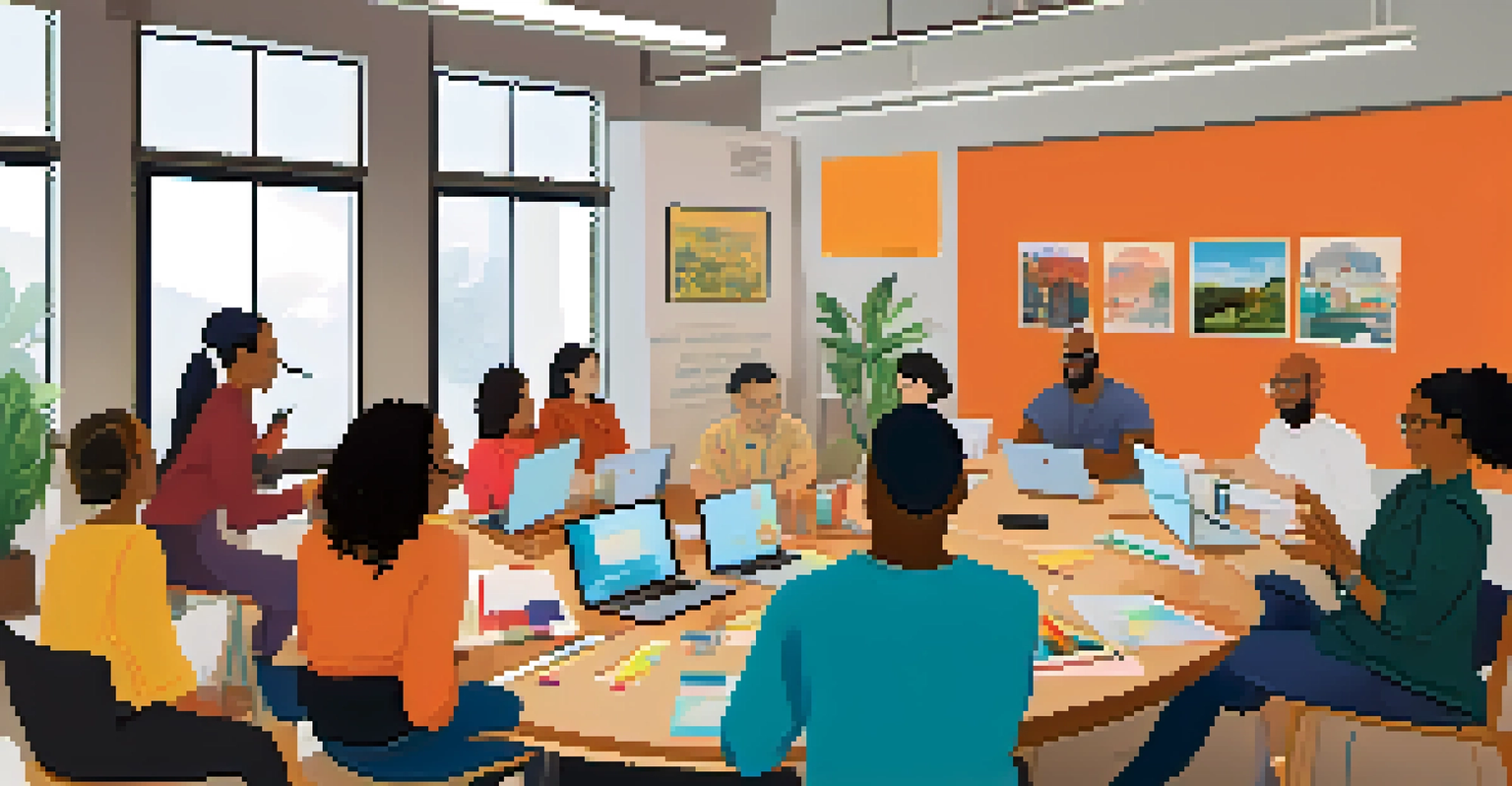The Importance of Life-long Learning in Today’s Fast-Paced World

Understanding Lifelong Learning and Its Relevance
Lifelong learning is the continuous, voluntary pursuit of knowledge for personal or professional development. In a world where technology and information evolve at lightning speed, staying relevant means embracing this concept wholeheartedly. Think of it like keeping your favorite app updated; without updates, it becomes obsolete and less effective.
The ability to learn is the most important quality a leader can have.
In essence, lifelong learning isn't confined to formal education. It encompasses self-directed study, online courses, workshops, and even informal learning from experiences. This adaptability is crucial as industries transform and new skills become necessary.
By committing to lifelong learning, individuals not only enhance their skill sets but also cultivate a mindset that welcomes change. This flexibility is vital in a job market that increasingly values adaptability and innovation.
The Impact of Rapid Technological Advancements
Today’s technological landscape is a double-edged sword; it offers incredible tools while simultaneously making certain skills obsolete. For instance, the rise of artificial intelligence and automation has reshaped entire industries, meaning that what worked five years ago may no longer be relevant today. Lifelong learning helps you keep pace with these changes.

Consider how quickly social media platforms evolve. A marketing strategy that was effective last year may not yield the same results today because platforms like Facebook and Instagram are constantly updating their algorithms and features. Continuous learning allows professionals to adapt and thrive amidst these shifts.
Lifelong Learning is Essential
Embracing lifelong learning is crucial for personal and professional growth in a rapidly changing world.
By embracing lifelong learning, you equip yourself to leverage new technologies effectively. This proactive approach not only keeps your skills sharp but also positions you as a valuable asset in any workplace.
Building Resilience Through Continuous Learning
Resilience is the ability to bounce back from setbacks, and lifelong learning plays a crucial role in developing this trait. When you continually seek knowledge, you expand your toolkit for problem-solving and adaptability. This means that when faced with challenges, you’re better prepared to navigate them.
Lifelong learning is not only the key to success in the professional world but also a pathway to personal fulfillment.
For example, consider a professional who faces sudden job loss due to market changes. Those with a lifelong learning mindset are already accustomed to acquiring new skills and may find it easier to pivot to new opportunities. They are often more resourceful and confident in their ability to learn and grow.
Thus, lifelong learning fosters a sense of empowerment. It instills the belief that you can always adapt and rise, no matter what challenges come your way.
Enhancing Personal Growth and Fulfillment
Beyond professional benefits, lifelong learning enriches your personal life. Engaging in new learning experiences can ignite passion and curiosity, leading to a more fulfilling life. Whether it’s picking up a new hobby or studying a subject you’ve always been interested in, each learning opportunity adds depth to your life.
Imagine learning to play a musical instrument. Not only does it require dedication and practice, but it also opens up a world of creativity and self-expression. This pursuit of knowledge can lead to new friendships and connections with others who share similar interests.
Adaptability is Key to Success
Continuous learning equips individuals to adapt to technological advancements and industry shifts.
In this way, lifelong learning becomes a journey of self-discovery. It helps you uncover new facets of your personality, making life more vibrant and enjoyable.
Networking and Building Connections Through Learning
One often-overlooked aspect of lifelong learning is its role in networking. Taking courses or attending workshops provides opportunities to meet diverse individuals who share your interests and ambitions. These connections can lead to collaborations, mentorships, and even job opportunities.
Think of it as a community of learners; everyone is there with a common goal of expanding their knowledge. This environment fosters rich discussions and idea exchanges, enhancing the learning experience.
By actively participating in learning communities, you not only gain knowledge but also build a robust professional network. These connections can prove invaluable as you navigate your career path.
Overcoming Barriers to Lifelong Learning
Despite its advantages, many people face barriers to lifelong learning. Time constraints, financial limitations, and a lack of motivation can hinder individuals from pursuing further education or skill development. However, recognizing these challenges is the first step toward overcoming them.
For instance, carving out just a few hours a week for online courses or setting personal learning goals can make a significant difference. Even free resources, such as podcasts or webinars, can provide valuable insights and knowledge without breaking the bank.
Networking Enhances Learning
Participating in learning opportunities fosters valuable connections that can lead to collaborations and career advancements.
By actively seeking solutions to these barriers, anyone can embark on a lifelong learning journey. It’s about making small, consistent efforts that can accumulate over time.
The Future of Lifelong Learning in a Changing World
As we look to the future, the importance of lifelong learning will only continue to grow. With the rapid pace of change in technology and industry, the ability to adapt and learn will be paramount for success in any field. Organizations are increasingly recognizing this need and may even provide resources and support for employee learning.
Additionally, the emergence of new forms of education, such as micro-credentials and online learning platforms, makes lifelong learning more accessible than ever. This democratization of knowledge allows individuals to learn at their own pace and choose subjects that genuinely interest them.

In conclusion, lifelong learning is not just a trend; it's a necessity for thriving in today’s fast-paced world. By committing to this journey, you position yourself for continuous growth and success.